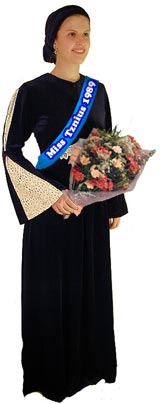I wrote a new short story on Hevria -- well, okay, half a short story -- but I have the whole thing in my head, and I'm, like, 98% sure that I'm going to post the other half in 2 weeks. Or next week, if Elad lets me.
And I'm kind of overbrimming with behind-the-scenes stuff to tell you about it.
- The genesis of the story: I love one-night (or one-day) stories, like American Graffiti and Superbad and Ferris Bueller's Day Off. I like giving my stories time limits in general, like how Goldbergs had to end at the end of the summer and this memoir I'm working on goes from Halloween to Thanksgiving. That gives me a ruler to pace everything. Having a single night is even better. It's like a puzzle where every single thing that happens has to fit.
- Yes, the name of the shop in the story is based on the dear, wonderful Nosh World, zichrono l'vrocho (the characters and even the store itself are as complete fabrications as anything can be), but another major influence in the title and the story is the book Last Night at the Lobster, by Stewart O'Nan. It's about a Red Lobster that's shutting down, and there's a snowstorm coming, and workers keep not showing up for their shift, and it's really sad and beautiful -- and specifically, the way it was taught to me by my professor Alexi Zentner, who has a new book out this week that I'm not sure I'm allowed to say is really by him.
- I'm doing this sort of as a challenge to myself: both to finish something, and to put it in front of people. I've been in kind of a sad place lately. My last novel is in limbo and the new one I'm writing is taking forever, and I keep starting stories and then not finishing them. So I'm trying to vanquish my writing anxiety with performance anxiety. I've put up the first half! Now I have to finish the damn thing.
- I just also want there to be more fiction on Hevria! And more stories about Hasidim that aren't about how pathetic we are or people running away or what a horrible place the community is. Not that this is exactly a happy story (nothing I'm gonna write right now is going to be that), but I really do like Zvi, the main character, and I hope other people will too.
- I was working on the last part of the story this morning and I realized with a shock of horror, there's almost no chocolate. Sure, I mention ice cream once or twice, but it is in no way true-to-life to write about a snack shop in Crown Heights and exclude chocolate. There's a paragraph in the second part about a girl who buys a bag of tortilla chips, and it would make way more sense for her character to be eating chocolate, but it makes way more sense for me as a person to think of someone eating nachos:
And she buys a 50-cent pack of chips, of Golden Fluff tortilla strips, a brand whose name has always puzzled him (no gold? no fluff?) but whose taste is undeniably solid, that perfect balance of spicy and tangy and sweet, that he once read the Japanese call umami, a harmony of flavor, the perfect culinary addiction of which he was the purveyor. He loved the boldness of Tsivia Singer’s pre-party indulgence, and the vision of her walking down the street with the umami tang on her breath, neither of which he would ever taste.











 It was almost the end of my shift. An woman in her late 60s showed up (danger, my mind flashed, slow walker) asking for an escort to the subway station (another danger sign: it's 15 minutes away). I smiled and said sure. She was an old black woman with one of those hairdos that is frozen into place and pastel pink church clothes. It turned out that she lived a block or two away from me.
It was almost the end of my shift. An woman in her late 60s showed up (danger, my mind flashed, slow walker) asking for an escort to the subway station (another danger sign: it's 15 minutes away). I smiled and said sure. She was an old black woman with one of those hairdos that is frozen into place and pastel pink church clothes. It turned out that she lived a block or two away from me. 


 Because my wife is a personal chef, I've got a bird's-eye view of the situation: In this section of the community, people are struggling to learn as much about fine food as they can, and the easiest way of investigating is with their wallets.
Because my wife is a personal chef, I've got a bird's-eye view of the situation: In this section of the community, people are struggling to learn as much about fine food as they can, and the easiest way of investigating is with their wallets.  hip-hop rhymes." I felt instantly both scandalized and famous. Add that to the fact that some middle-aged dude kept coming up to me and asking if I was Matisyahu (in Crown Heights, mind you) and it was as trippy an experience as Sunday afternoons get.
hip-hop rhymes." I felt instantly both scandalized and famous. Add that to the fact that some middle-aged dude kept coming up to me and asking if I was Matisyahu (in Crown Heights, mind you) and it was as trippy an experience as Sunday afternoons get. This by no means diminishes the excellent, massive, and spotlessly-presented Yiddish library on
This by no means diminishes the excellent, massive, and spotlessly-presented Yiddish library on  The Spielberg Archive is kind of like that, only using Yiddish books instead of websites.
The Spielberg Archive is kind of like that, only using Yiddish books instead of websites.  This was my first
This was my first  I've always been a Halloween-positive boy myself, but yesterday, I had to agree: it was pretty much a madhouse of goodwill and thanksgiving. We made thirty-two of our
I've always been a Halloween-positive boy myself, but yesterday, I had to agree: it was pretty much a madhouse of goodwill and thanksgiving. We made thirty-two of our  And, no matter
And, no matter 










